HOME

A Walk in the World
Joseph Campbell and J Krishnamurti, also simply known as K
My ongoing reading of Joseph Campbell's life has taken me into new directions and into new literary terrain I have not frequented; it's exciting. Joseph Campbell--on a steam boat from Europe to America in 1924 prodigiously encountered
Jiddu Krishnamurti , a famous speaker of religious and spiritual material, and later said that the serendipitous meeting changed his life.
Campbell would encounter Krishnamurti several more times during the 1920s but his last visit occurred in 1929 when he went to hear Krishnamurti speak in Eerde, Holland . Krishnamurti was considered by some theosophists to be the "World Teacher," but he later disbanded the group ( Order of the Star) in 1929 which had sprung up around him.
Campbell was so inspired by Krishnamurti's words while at Eerde, he offered the following to his journal:
"So here I hang between my past and my future trying to fan a spark to flame a spark which came as the final gift from my past. And now I feel that the old shell of the Joe who was searching and never quite finding lies somewhere in the woods which are about Krishna's castle. -
But through the shell was a fairly huge thing, the creature which stepped out of it is microscopic in size! Sometimes I lose him amidst all the rubbish of my old feelings and I never have seen him stand up on his own feet and walk. But this tiny spark of what I hope to be this glimmer of gold which I've discovered at last in the midst of disillusions this thing is what I'm going home now to nourish, and to build into something " ( An Open Mind , p. 113).
Krishnamurti said:
All gurus are welfare organizations providing petty experiences to their followers. The guru game is a profitable industry.
The fact is that we don't want to be free. What is responsible for our problems is the fear of losing what we have and what we know. All these therapies, all these techniques, religious or otherwise, are only perpetuating the agony of man.
U. G. Krishnamurti
No, no not that Krishnamurti, "World Teacher," "The Light of the East," all that nonsense. No, this is another one, a different one, a far different one, a guy who "hates" enlightenment, one who says, "You see one holy man, you've seen them all."
He has met the other Krishnamurti, J. Krishnamurti spent seven years with him and says, finally: "His teaching did not interest me at all." At the end, he said to "J,"
"What the hell are we doing? I've wasted seven years. Goodbye. I don't want to see you again." Then I walked out.
This Krishnamurti married, was prosperous, had children and one day he left his family so he could let his soul "wither." He ultimately found the Truth. Where? In what he calls "a strip tease joint," where he realized, at age forty, that he didn't know whether I was the dancer or whether there was some other dancer dancing on the stage.
There was no division; there was nobody who was looking at the dancer. The question of whether I was the dancer or whether there was a dancer out there on the stage puzzled me. This kind of peculiar experience of the absence of division between me and the dancer puzzled me and bothered me for some time.
Can you imagine getting enlightened in the Casino de Paris?
He refers to finding this Truth as "a calamity." With his "declutched mind," he went through shaking, wringing, pain, helplessness, thinking there were bugs in his bed, months of agony, every cell changing, clanging. He found himself a man/woman, with a fully formed breast on the left side, all his chakras swollen, painful.
"It took three years for this body to fall into a new rhythm of its own," he says. This change this excruciatingly painful change cannot be prepared for, cannot be sought, comes unasked and unwanted.
We are not created for any grander purpose than the ants that are there or the flies that are hovering around us or the mosquitoes that are sucking our blood.
Most of all, he tells us, enlightenment should not be of interest to anyone. Why? This spiritual Indian Yoga/mysticism business is "poppycock." What happens in a state of real change, "is a primordial consciousness, untouched by thought."
You have a feeling that there is a "cameraman" who is directing the eyes Movement attracts them, or brightness or a color that stands out from whatever is around it. There is no "I" looking. Mountains, flowers, trees, cows all look at me.
There is nothing inside us, Krishnamurti claims heroism, wisdom, virtue, insight, vision. No, there is nothing inside all of us but fear; and meditation leads nowhere but to the looney bin.
Books are meaningless, he tells us. Reading his words is futile. Get it? We are reading a book of a man who says reading a book about him and what he says is futile, a waste of time, useless. And when he is asked pregnant questions like "What will happen after death?" he responds.

All questions about death are meaningless, especially for a young person like you. You have not even lived your life. Why do you ask that silly question? Only a person who is not living asks "What will happen after my death?" You are not living. First live your life, and when the time comes. Let us leave it at that. I am not interested in that kind of philosophy.
This one is great. He can't stand the guru stuff. He is the anarcho-syndicalist of the mystical world, the Kropotkin of the New Age, the Bakunin of all that touchy-feely nonsense.
A breath of fresh air? No, more: he's a hurricane of no-nonsense, a firestorm of indifference to this bliss crap.
If you think you are on The Way, read him. You have everything to gain, nothing to lose but your arrogance. The only thing you can win is the chance to forget your pretence of Being on the Path.
Deb Das
The plain fact is that if you don't have a problem, you create one. If you don't have a problem you don't feel that you are living.

Bruce Lee was heavily influenced by the teachings of Krishnamurti and applied his considerations to the martial arts.
Inspired to explore kung fu and other systems for himself, Bruce Lee revolutionised the approach to learning a martial art.

By accepting no man as their master, a martial artist could be free to learn according to inclination and interest instead of being bound by the past.


Concerning the Jun Fan Jeet Kune Do Nucleus, our on-going endeavor has been to walk the tight rope between doing the very thing Bruce asked us not to do (namely "make a fuss" and say that Jeet Kune Do is different from this or that) on the one side, while still preserving the integrity of Bruce's teachings so that he may receive the appropriate recognition for the great contribution he has made to mankind.
Bruce did not want Jeet Kune Do to be called an art, but unfortunately he is not with us and there is a core curriculum that needs to be preserved for future generations.
There is much to be said for the attainment of a goal, achieving the end result, but what about the process? It is plain to see the level Bruce attained when, for example, one watches his films.
However the process, the journey, is what is interesting and unique to each human being. How did Bruce get there? How did he attain such a great level of mastery? This is what most people want to know. By using Bruce's example of progression as a guide not a mold for our own experiences, we, too, can find ourselves.
Both Bruce Lee and Krishnamurti believed that there are no paths to truth but th we make for ourselves. Truth cannot be attained by following anyone else's way; you cannot understand it by anyone else's pattern of thinking. Truth is the ultimate goal for each of us, no matter what area of life we choose to address.
Let Bruce's teachings be what he intended them to be: "a finger pointing to the moon," illuminating our paths toward liberation. In the spirit of Bruce and Krishnamurti, don't accept anything as truth until you discover truth for yourself.
Silence Is Golden
In some Asian traditions, such as the Tibetan, energy is often referred to as speech. That's because speech expends a tremendous amount of breath and energy, and unless it comes out in the form of mantras, chants, or prayers, speech is usually undisciplined, uneven, and often unnecessary.
The motor mouth syndrome that seems to infect many people in crowded urban environments exhaust energy reserves and can actually lower resistance and impair immunity.
As the Tao Master and Martial Artist Chang San-feng Said 600 years ago: Forget about words and your energy wont scatter. The Taoist Adept and Writer Liu I-ming agrees: When the mouth speaks, energy scatters.
Unless you have something important to say, its always best to keep your lips buttoned, because idle gossip and marathon monologues are like leaking tires: they permit your energy to escape and leave you flat. Silence is an effective way to conserve energy for more important internal uses.
Disease comes in through the mouth and disaster comes out through the mouth. The first is obvious: open mouths invite germs, dust, and airborne toxins to enter our systems. The second clause refers to the fact that we often create our own personal disasters by talking too much too carelessly, thereby offending others, revealing things about ourselves that should be kept secret, making bad impressions on people, and so forth.
So choose your words carefully, speak soft, and don't say any more than whats necessary.
K
To look at myself without any formula can one do that? Otherwise you can't learn about yourself obviously. If I say, I am jealous, the very verbalization of that fact, or of that feeling, has already conditioned it. Right? Therefore I cannot see anything further in it.

Now the question is: can the mind be free of this egocentric activity? Right? That is really the question, not whether it is so or not. Which means can the mind stand alone, uninfluenced? Alone, being alone does not mean isolation.
Sir, look: when one rejects completely all the absurdities of nationality, the absurdities of propaganda, of religious propaganda, rejects conclusions of any kind, actually, not theoretically, completely put aside, has understood very deeply the question of pleasure and fear, and division the `me' and the `not me'is there any form of the self at all?
"What Krishnamurti has done is to free spiritual life as science has done in other areas. He has maintained that one can be in total freedom from the very beginning to the very end, and he has stood for that, like a rock, for forty years. I think it may well take the world fifty more years to understand that. I think he is the man of tomorrow." Vimala Thakar
The core of Krishnamurti's teaching is contained in the statement he made in 1929 when he said: "Truth is a pathless land." Man cannot come to it through any organization, through any creed, through any dogma, priest or ritual, not through any philosophic knowledge or psychological technique.
He has to find it through the mirror of relationship, through the understanding of the contents of his own mind, through observation and not through intellectual analysis or introspective dissection. Man has built in himself images as a fence of security religious, political, personal.
These manifest as symbols, ideas, beliefs. The burden of these images dominates man's thinking, his relationships and his daily life. These images are the causes of our problems for they divide man from man. His perception of life is shaped by the concepts already established in his mind.
The content of his consciousness is his entire existence. This content is common to all humanity. The individuality is the name, the form and superficial culture he acquires from tradition and environment. The uniqueness of man does not lie in the superficial but in complete freedom from the content of his consciousness, which is common to all mankind. So he is not an individual.
Freedom is not a reaction; freedom is not choice. It is man's pretence that because he has choice, he is free. Freedom is pure observation without direction, without fear of punishment and reward.
Freedom is without motive; freedom is not at the end of the evolution of man but lies in the first step of his existence. In observation one begins to discover the lack of freedom. Freedom is found in the choiceless awareness of our daily existence and activity.
Thought is time. Thought is born of experience and knowledge which are inseparable from time and the past. Time is the psychological enemy of man. Our action is based on knowledge and therefore time, so man is always a slave to the past. Thought is ever-limited and so we live in constant conflict and struggle.
There is no psychological evolution. When man becomes aware of the movement of his own thoughts he will see the division between the thinker and the thought, the observer and the observed, the experiencer and the experience.
He will discover that this division is an illusion. Then only is there pure observation which is insight without any shadow of the past or of time. This timeless insight brings about a deep radical mutation in the mind.
Total negation is the essence of the positive. When there is negation of all those things that thought has brought about psychologically, only then is there love, which is compassion and intelligence.
by J Krishnamurti
We are going to discuss this morning the dissolution of the Order of the Star. Many people will be delighted, and others will be rather sad. It is a question neither for rejoicing nor for sadness, because it is inevitable, as I am going to explain.
You may remember the story of how the devil and a friend of his were walking down the street, when they saw ahead of them a man stoop down and pick up something from the ground, look at it, and put it away in his pocket.
The friend said to the devil, "What did that man pick up?" "He picked up a piece of Truth," said the devil. "That is a very bad business for you, then," said his friend. "Oh, not at all," the devil replied, "I am going to let him organize it."
I maintain that Truth is a pathless land, and you cannot approach it by any path whatsoever, by any religion, by any sect. That is my point of view, and I adhere to that absolutely and unconditionally.
Truth, being limitless, unconditioned, unapproachable by any path whatsoever, cannot be organized; nor should any organization be formed to lead or to coerce people along any particular path.
If you first understand that, then you will see how impossible it is to organize a belief. A belief is purely an individual matter, and you cannot and must not organize it. If you do, it becomes dead, crystallized; it becomes a creed, a sect, a religion, to be imposed on others.
This is what everyone throughout the world is attempting to do. Truth is narrowed down and made a plaything for those who are weak, for those who are only momentarily discontented.
Truth cannot be brought down, rather the individual must make the effort to ascend to it. You cannot bring the mountain-top to the valley. If you would attain to the mountain-top you must pass through the valley, climb the steeps, unafraid of the dangerous precipices.
This understanding is necessary because your belief has not transformed you but only complicated you, and because you are not willing to face things as they are.
You want to have your own gods new gods instead of the old, new religions instead of the old, new forms instead of the old all equally valueless, all barriers, all limitations, all crutches. Instead of old spiritual distinctions you have new spiritual distinctions, instead of old worships you have new worships.
You are all depending for your spirituality on someone else, for your happiness on someone else, for your enlightenment on someone else; and although you have been preparing for me for eighteen years, when I say all these things are unnecessary, when I say that you must put them all away and look within yourselves for the enlightenment, for the glory, for the purification, and for the incorruptibility of the self, not one of you is willing to do it. There may be a few, but very, very few.
As I said before, my purpose is to make men unconditionally free, for I maintain that the only spirituality is the incorruptibility of the self which is eternal, is the harmony between reason and love.
This is the absolute, unconditioned Truth which is Life itself. I want therefore to set man free, rejoicing as the bird in the clear sky, unburdened, independent, ecstatic in that freedom .
And I, for whom you have been preparing for eighteen years, now say that you must be free of all these things, free from your complications, your entanglements. For this you need not have an organization based on spiritual belief.
Why have an organization for five or ten people in the world who understand, who are struggling, who have put aside all trivial things? And for the weak people, there can be no organization to help them to find the Truth, because Truth is in everyone; it is not far, it is not near; it is eternally there.
Organizations cannot make you free. No man from outside can make you free; nor can organized worship, nor the immolation of yourselves for a cause, make you free; nor can forming yourselves into an organization, nor throwing yourselves into works, make you free. You use a typewriter to write letters, but you do not put it on an altar and worship it. But that is what you are doing when organizations become your chief concern.
How many members are there in it?” That is the first question I am asked by all newspaper reporters.
How many followers have you? By their number we shall judge whether what you say is true or false.” I do not know how many there are. I am not concerned with that. As I said, if there were even one man who had been set free, that were enough.

Again, you have the idea that only certain people hold the key to the Kingdom of Happiness. No one holds it. No one has the authority to hold that key. That key is your own self, and in the development and the purification and in the incorruptibility of that self alone is the Kingdom of Eternity.
So you will see how absurd is the whole structure that you have built, looking for external help, depending on others for your comfort, for your happiness, for your strength. These can only be found within yourselves.
You are accustomed to being told how far you have advanced, what is your spiritual status. How childish! Who but yourself can tell you if you are beautiful or ugly within? Who but yourself can tell you if you are incorruptible? You are not serious in these things.
But those who really desire to understand, who are looking to find that which is eternal, without beginning and without an end, will walk together with a greater intensity, will be a danger to everything that is unessential, to unrealities, to shadows. And they will concentrate, they will become the flame, because they understand. Such a body we must create, and that is my purpose. Because of that real understanding there will be true friendship.
Because of that true friendship which you do not seem to know there will be real cooperation on the part of each one. And this not because of authority, not because of salvation, not because of immolation for a cause, but because you really understand, and hence are capable of living in the eternal. This is a greater thing than all pleasure, than all sacrifice.
So these are some of the reasons why, after careful consideration for two years, I have made this decision. It is not from a momentary impulse. I have not been persuaded to it by anyone.
My only concern is to set men absolutely, unconditionally free.”
Observing Without the "Me"
First Public Talk given by J. Krishnamurti,
Brockwood Park, England, September 5, 1970
I am so glad it is such a nice morning. A beautiful sky and lovely countryside. But I am afraid this is not a weekend entertainment. What we shall talk about is quite serious, and perhaps after I have talked a little we can talk over, discuss, or dialogue, or talk over together what we have talked about.
I don't know how you feel about what is happening in the world, in our environment, to our culture and society.
It seems to me there is so much chaos, so much contradiction and so much strife and war, hatred and sorrow. And various leaders, both political and religious, try to find an answer either in some ideology, or in some belief, or in a cultivated faith.
And none of these things seems to answer the problems. Our problems go on endlessly. And if we could in these four talks in this tent and the two discussions that are to take place, if we could be serious enough to go into this question of how to bring about, not only in ourselves but in society, a revolution, not physical revolution because that only leads to tyranny and the heightened control of bureaucracy.
If we could very deeply find out for ourselves what to do, not depending on any authority, including that of the speaker, or on a book, on a philosophy, on any structural behavioral pattern, but actually find out irrevocably, if one can, what to do about all this confusion, this strife, this extraordinary, contradictory, hypocritical life one leads.
To me it seems to be fairly clear that to observe there must be freedom. Not only the outward phenomenon, but also to observe what is going on within ourselves, to observe without any prejudice, without taking any side, but to examine very closely, freely
The whole process of our thinking and our activity, our pleasures, fears, and all the things that we have built around ourselves, not only outwardly but in ourselves as a form of resistance, compulsive demands, escapes and so on. If we could do that consistently, with full intention,
to discover for ourselves a way of living that is not contradictory, then perhaps these talks will be worthwhile. Otherwise it will be another lecture, another entertainment, pleasurable or rather absurd, logical or illogical and so on. So if we could completely give ourselves to the examination, to observe intimately what is going on, both outwardly and inwardly.
Now the difficulty in this lies, it seems to me, the capacity to observe, to see things as they are, not as we would like them to be, or what they should be, but actually what is going on. To so observe has its own discipline, not the discipline of imitation, or compulsion,
or conformity but that very observation brings its own discipline, not imposed, not conforming to any particular pattern, which implies suppression, but to observe. After all when you do observe something very closely, or listen to somebody very fully, that very listening and seeing, in that is implied attention. And where there is attention there is discipline, without being disciplined.
If that is clear, the next point is, in observing there is always the observer. The observer who, with his prejudices, with his conditionings, with his fears and guilts and all the rest of it, he is the observer, the censor, and through his eyes he looks, and therefore he is really not looking at all, he is merely coming to conclusions based upon his past experiences and knowledge. The past experiences, conclusions and knowledge prevent actually seeing.
And when there is such an observer and what he observes is something different, or something which he has to conquer, or change and so on; whereas if the observer is the observed.
I think this is really a radical thing to understand, really the most important thing to understand if we are going to discuss anything seriously: that in us there is this division, this contradiction, the observer and the many fragments which he observes. The many fragments make up the `me', the ego, the personality, whatever you like to call it, the many fragments.
And one of the fragments becomes the observer, or the censor, and that fragment looks over the various other fragments. Please do this as we are talking, not agreeing or disagreeing, but observe this fact that is going on within oneself; it becomes terribly interesting and rather fun if you go at it very, very seriously.
We are made up of many fragments, each contradicting the other. Both linguistically, factually and theoretically. Contradictory desires, contradictory pursuits, ambitions that deny affection, love and so on one is aware of these fragments. And who is the observer who decides what he should do, what he should think, what he should become? Surely one of the fragments.
He becomes the analyzer, he assumes the authority. One fragment, among the many other fragments, assumes the censorship, and he becomes the actor, the doer, compelling other fragments to conform and therefore brings about contradiction.
I don't know if we see this very clearly? Then what is one to do, knowing most of us are made up of these many fragments, which fragment is to act? Or are all the fragments to act? You are following? Or action by any one of the fragments brings about contradiction, conflict and therefore confusion. Right?
Are we communicating with each other? Communication being thinking together. Not only verbally, but understanding together, going together, creating together.
One fragment believes in god, or doesn't believe in god, and another fragment wants a security, not only physical but psychological security. One fragment is afraid, another fragment tries to dominate that fear. Seeing this extraordinary contradiction in ourselves, what is one to do? The fragments cannot be integrated, which implies there is an integrator. Right?
That is, the integrator becomes another fragment. So it is not integration, it is not one fragment which assumes a superior position as the higher self, or the most intellectual thing and dominates the rest. Or one fragment which feels greatly emotional and tries to function along emotional lines.
So seeing this very clearly, what is the action that will be total, that will not be contradictory? And who is it that is seeing the whole fragments?
Is it another fragment that says, `I observe all the many other fragments'? Are we moving together? Or there is only observation without the observer. Can we go along? You understand my question?
Is there an observation, the seeing, without the `me' as the observer seeing? And therefore creating a duality, a division.
That's really our problem, isn't it, basically? We have divided the world, the geographical world, as the British, the French, the Indian, the American, Russian and so on, and inwardly we have divided psychologically the world, those who believe and those who do not believe, my country, your country, my god, your god and all the rest of it.
And this division has brought about wars. And a man who would live completely at peace, not only with himself but with the world, has to understand this division, this separation. And can thought bring about this complete, total observation? I don't know if we are going together in this?

Who is responsible for this division? The Catholic, the Protestant, the Communist, the Socialist, the Muslim, the Hindu? You follow? This division that is going on within, outwardly and inwardly who is responsible? The Pope?
The Archbishop? The politicians? Who is it? Is it thought? The intellect? Can thought observe without division? You follow? We observe or thought observes all the many factors of these divisions; and is it not thought itself that has brought about this division, the intellect?
And the intellect is one of the divisions, one of the fragmentations and that intellect has become extraordinarily important, which is thought. Right? For us thought is the most extraordinarily important thing, the intellect.
And we hope to solve all the problems of our life through thought, don't we? By thinking over a problem, trying to suppress it or give free reigns to it. Thought is the factor, is the instrument, which is always observing. Right?
Now that is, thought is one of the fragments. You don't live by thought, you have your feelings, you appetites, your pleasures. So if thought breeds contradiction, as yours and mine, as heaven and hell and all the rest of it, then how shall we observe, see, without the fragment which we call thought? I do not know if you have ever put this question to yourself.
Thought is after all the response of the past, memories. Thought is never free, and with that thought, with that instrument, we are always looking at life, always responding to every challenge with thought.
Now can we observe with eyes, with a mind that is not shaped by thought? That is, can we observe without any conclusion, without any prejudice, without being committed to any particular theory or action?
Which means to observe with eyes that have learnt about these many factors, fragments, which make up the `me'. That is, as long as there is no self-knowing, as long as I do not know myself completely and thoroughly, I must function in fragments. And how to observe myself, how to learn about myself, without the censor intervening in observation. Are we getting together?
Look, I want to learn about myself because I see how extraordinarily important it is if I am at all to understand the world, action and a new way of living altogether.
I have to understand myself not according to some philosopher, psychologist however learned. I want to learn about myself as actually what I am, without any distortion, without suppressing anything, what I am both consciously as well as unconsciously. I want to know myself completely. Now how shall I learn? How shall I learn about what I am?
To learn there must be a certain passion, a great deal of curiousity, without any assumption, taking things for granted, to look at myself without any formula. Can one do that? Otherwise you can't learn about yourself, obviously.
If I say, `I am jealous,' the very verbalization of that fact, or of that feeling, has already conditioned it. Right? Therefore I cannot see anything further in it. So there must be a learning about the usage of words, not to be caught in words, and the realization that the word, the description, is not the described or the thing.
So to look, to learn about oneself there must be freedom from all conclusion. I am ugly, I don't want to look at myself. I don't know what I shall find in myself.
I am afraid to look at myself. You know all the things that we have come up with. So, can one observe without any sense of condemnation? Because if there is condemnation it is one of the fragments that has gathered, that has been conditioned by a particular society or culture in which it lives.
If you are a Catholic you are conditioned 2,000 years of propaganda has conditioned your mind, and with that mind you observe. And in that observation there is already condemnation, justification, therefore you don't learn. Right? The act of learning implies there must be freedom from the past. Obviously.

Now we are learning together here and is one free from the culture that has conditioned the mind? Being born as a Hindu or a Muslim, of centuries of propaganda don't do this, do this, believe in this, don't believe in that has conditioned the mind. And such a mind says.
I am going to learn about myself. It doesn't realize that it is conditioned, and a conditioned mind cannot possibly learn. Therefore it must be free of its conditioning I don't know if you are following all this? Are you? You know what that implies when you say, Yes, we are'?
Not to be an Englishman, or a Frenchman, not to belong to any religion, not to have any prejudice, not to come to any conclusion, which means freedom. And it is only such a mind that can learn about itself.
Therefore one has to be aware of one's conditioning? Then the problem arises: who is to be aware of the conditioning? You follow? There is only conditioning, not, to be aware of the conditioning.
I don't know if you see this? The moment I am aware of my conditioning there is a duality, isn't there? I who am aware of my particular conditioning and hence the one who is aware wants to change his conditioning, break it down, be free from it.
Therefore that creates conflict. Right? All division is bound to create conflict. Right? Sir, look, the Catholic and the Protestant, you have got a very good example. Any division is bound to bring about contradiction, conflict and strife.
If I say, I will be aware of my conditioning, there is immediately a contradiction, a separation. So to be aware of one's conditioning.
You see? I am going to be aware of my conditioning, is one thing. And the other is to be aware of it. Non-verbally, because the word is not the thing, and therefore the actual perception of it.
Can you do this? Not that this a group therapy, or analysis--for god's sake none of all that stuff but actually is one aware of this conditioning? To be aware that I am a Hindu. Awareness implies looking, being aware, without any choice. The moment you have choice it is a fragmentation.
So can you observe yourself without any image of yourself? The image of yourself is the conditioning. Right? And to observe without any image, which means I don't know what I am, I am going to find out.
In that there is no assumption, conclusion, therefore the mind is free to observe, to learn. Right? But in learning the moment there is an accumulation you have stopped learning. Look sir, suppose I have observed myself and I see I am this, as a fact, and from that observation I have learnt something about myself.
Having learnt about myself is the past. Right? With that past knowledge I am going to observe, therefore I cease to observe. It is only the past that is observing. Right? So can I, can the mind observe without accumulating?
You understand the problem? Just look at the problem first, not what to do. When you understand the problem very clearly action follows naturally. I observe myself and through that observation I have learnt something. After having learnt, I further observe.
Having learnt more, I go on to observe, therefore the observer becomes the analyzer. Right? Right? Please do see this. Let's go along. The observer, the analyzer, is the result of many things he has learnt about himself, and with the eyes of the past, as the analyzer, as the person who has accumulated knowledge, he examines, he looks, he learns. So the past is always trying to learn of what is going on in the present. Is this clear?
So can there be a learning, that is, watching, observing, without any sense of accumulation, so that the mind is always fresh to learn? It is only such a mind that is a free mind. So can the mind be free of thought in observing, in learning?
Because you see one wants to learn, naturally, seeing the transient nature of our life, the exhaustion of pleasure revived by thought, given continuity to pleasure by thought, seeing how everything comes to an end, one wants to find out if there is anything which is beyond, which is transcendental.
Which is something other than this daily routine, daily boredom, daily occupation, daily worry. After all that is what religions promise: seek god, love god. But to learn if there is anything that is beyond thought, beyond the intellect, beyond the routine, one must be free of all beliefs, mustn't one? Which doesn't mean you become an atheist. The atheists and the believers are both the same.
I want to find out seriously if there is something which is beyond `what is', which means the mind must be totally free of any fear otherwise fear will project something that will give it a comfort. So I must learn all about fear, the mind must be enquiring into this whole terrible problem of fear. If the mind wants to find out anything that is beyond the imagination,
the myth, the symbol, man has projected as god, the mind must be free of all that to find out. And it cannot possibly find out if there is any form of fear. And we are frightened human beings. So can the mind learn the whole nature of fear, not only the conscious fears but the deep-rooted fears of which most of us are unaware?
So from that arises the question: how are the unconscious fears to be revealed, to be exposed? Are you following all this? Is it to be exposed through analysis, which means the analyzer, which means a fragment who is going to analyze.
Or through dreams discover all the fears, and that is a perilous road, to find out through dreams what we are because dreams are merely the continuation of what we are during the daily life, waking hours. No? Is all this too much in one morning?
Audience: No.
K: Good. So how is the mind, which has divided in itself as the conscious and the unconscious, which again is a division, therefore contradiction, how is the mind to be aware of this whole structure and nature of consciousness? The me? You follow? Without division. And there are hidden parts in the mind,
deep down in the darkest corners of our minds, all kinds of things going on. Nothing extraordinary, it is as silly as the conscious mind, the things of the conscious mind. So how is all that to be exposed? Not through analysis obviously.
Right? It you really see that, the impossibility, the danger, the falseness of analysis , I hope there aren't any analysts here, bad luck if there are if you really see that, your mind then is free to observe without analysis. I don't know if you see that.
Look sir, let's be very simple about this. Analysis implies time. Right? Analysis implies the analyzer who is different from the thing analyzed. And is the analyzer different from the thing he wants to analyze?
Surely they are both the same only he, a fragment, has assumed the part, the knowledge, the assumption that he is different and he is going to analyze. And each analysis must be complete. Right? Otherwise you carry over the misunderstandings of your analysis to the next analysis. Time, division as the analyzer,
each analysis must be complete, finished each time, which are all impossible. If you see the truth of that, the actual fact of it, then you are free of it, aren't you? Are you? If you are free of it then you have quite a different mind that is going to observe.
You see the difference? If there is the freedom from the false and analysis is the false then my mind is free from the burden of that which has been false, therefore it is free to look.
Now can the mind look at the totality of consciousness without any division as the observer watching the whole structure of consciousness? I don't know if you are following all this?. Is this all becoming rather complex?
If it is complex, life is complex. And to learn about oneself you have to face this extraordinarily complex entity called the `me'. You have to learn about it, and that's what we are doing, we are getting educated about ourselves.
So, can the mind observe the totality of itself? Look, we are human beings at least supposed to be only we have divided ourselves into various nationalities, religious beliefs, and so on.
When you observe, that is, when you go beyond all nationalities and religious beliefs, we are aggressive, brutal, violent, pleasure-seeking people, frightened and so on, and we have to learn all about that, which is ourselves. And to learn about ourselves we see analysis has no answer at all. On the contrary analysis prevents action,
denies action. So can the mind observe the totality of itself, look at itself without any division? Then there is no need for analysis or for the hidden things to be exposed, you see the whole thing.
Therefore in that observation you may discover fear. Fear and pleasure are the two principal things in us, driving forces, demanding more and more and more pleasure, and warding off fear. Right? Now what do you do with pleasure? You want more of it,
surely both physical, psychological pleasures. And in looking at pleasure very closely, one asks oneself: what is it? what is pleasure? Please sirs, do discuss with me. Come together. What is pleasure to you? Physical sensation, psychological factors.
Q: For me pleasure is an escape.
K: For me, the gentleman says, pleasure is an escape. Escape from what? Am I escaping through pleasure? Escaping from fear of not having pleasure? Do look at it. Please sirs do look at yourselves and you will find out very simply this thing. Most of us are pursuing pleasure, aren't we? Why? Not that we should or should not. It would be absurd to say, `Don't have pleasure', when you look at the sky and the trees and the lovely countryside there is a delight. But why this pursuit of pleasure?
Q:I feel that I sustain myself in pursuing pleasure.
K: Sustain yourself? Who is yourself? This is much more complex than that.
Do go into it a little bit. First of all let's be very clear what we mean by pleasure. Pleasure is entirely different from joy, isn't it? No? When you are joyous, when you think about it, it becomes pleasure doesn't it?
Q: Pleasure is a stimulus.
K: Obviously a stimulus.
We know all how pleasure comes about. It is a stimulus. All right. Go into it please. Look at the pleasures you have. And also you have at rare moments great joy, don't you? Sudden burst of joy.
Is there a difference between the two? Look, you have suddenly, as you are walking along you feel extraordinarily happy, and the moment you think about it, has gone. No? No? At that moment of great joy there is no thinker. The thinker comes in and says, `I wish I could have that extraordinary moment again.'
So the thinker has made joy into pleasure by thinking about it. No? So there is a difference between joy and pleasure. I have had pleasure. Somebody said something nice. I have had sexual pleasure. I have had pleasure in achievement, in success, in making a name for myself. And that pleasure is something entirely different from enjoyment, from joy. No?
Q: Joy is in the now.
K: Yes, joy is in the now, pleasure is something which happened yesterday and I want to repeat it today. I think about the thing that gave me pleasure yesterday and the very thinking about that pleasure sustains that thing which was called pleasurable yesterday.
No? So thought sustains pleasure, doesn't it? And also thought sustains fear. No? You are uncertain about that? I might lose my job; I am not so nice looking as you, not so clever; I might die tomorrow; I am lonely; I want to be loved; I may not be loved, and so on. Thought does both, sustains both doesn't it? fear as well as pleasure. No?
So what are you going to do about it? Put an end to thought, knowing thought breeds and sustains and nourishes these two. And to escape from this pattern we go off. Right? We turn to meditation, we turn to Zen, we turn to you know, become Communist, Socialist, oh, a dozen things.
To escape from this pattern we become terribly religious, or terribly worldly, or revolt against the established order, which is built on this pattern. And the person who revolts creates the same pattern, the same thing in a different pattern. He is still seeking pleasure, avoiding fear.
Then what is one to do? You follow this thing? Because the whole religious structure is based on escaping from this: believe in something marvelous, think about it all the time. But the other thing goes on all the time also.

So there is contradiction in wanting to be free of it, and yet be in it. I don't know if you see all this. So they say, `Suppress thought, control thought, kill the mind'. No? Who is it that is going to suppress thought? You see the danger?
So that whole process of thinking has no meaning whatever. Right? I don't know if you see all this. All escapism has no meaning, whether that escape be in social work, watching football, or attending, going to churches where there is another form of entertainment.
So unless you solve this basic problem, that is, to learn all about it, then only the mind can be free from it. Which means, can the mind observe the various forms of pleasures,
the stimuli and so on, and also all the fears which thought has bred in its search for security. Right? That is, the brain demands that is be completely secure otherwise it can't function properly, efficiently, logically, sanely. Right?
The brain, which is the storehouse of memory, experience, knowledge, and that brain with its thought is constantly seeking safety, security, permanency. And not finding permanency in any relationship husband/wife, you know, relationship then it tries to escape in some form of belief, in some ideology, in some image, in nationalism, in god. You follow? Escape.
So can the mind, knowing all this, that is, learning about all this, which is being educated, educating itself, learning from itself, not from somebody else, because no book can give you all this, no teacher, only one has to learn about oneself completely. Then when one is not self-centered, then perhaps one is able to observe or see something which is beyond all this.
Now Sirs, can we ask, shall we talk, discuss or question?
Q: May I ask a question please? Could you tell me whether unselfishness is real or unreal?
K: Could you tell me whether unselfishness is real or unreal. I wonder what we mean by the word real.
Q: Actual.
K: Actual. Yes.
Need somebody tell me whether I am self-centered or not--the actual fact? What does that mean, selfishness? What does it mean to be self-centered? To be concerned about oneself. Right? Whether that oneself has been identified with the nation, with a belief, with a particular ideological, political system, or that self identified with the family,
it is still `the self'. That is the actual. That is `what is'. That's what we are doing all the time. My family. And in that too there is a division--me and my family. Me with my ambitions, with my greed, with my position. You follow? And the family pursuing also the same thing, isolating each other.
Right? All this is a form of egocentricism, isn't it? That is the actual. That is what is going on in our life daily. I like those who flatter me, who give me comfort; I don't like those who say anything about my belief. You know it all becomes so absurdly childish the whole thing.

Now the question is: can the mind be free of this egocentric activity? Right? That is really the question. Not whether it is so or not. Which means can the mind stand alone, uninfluenced? Alone, being alone does not mean isolation.
Sir, look: when one rejects completely all the absurdities of nationality, the absurdities of propaganda, of religious propaganda, rejects conclusions of any kind, actually, not theoretically, completely put aside, has understood very deeply the question of pleasure and fear, and division he me and the not me is there any form of the self at all?
So one has to be free of all this to find out what it means to live a life in which there is no fear. But you see unfortunately for most of us we have neither the time nor the inclination to pursue this right to the end. Rather, sorry, we have plenty of time but we don't want to do this because we are afraid what might happen.
You see I have my responsibilities to my family, I can't become a monk. You follow? All the excuses that one churns out, which means we do not want to find out how to live without sorrow. And to learn about it one has to become extraordinarily, choicelessly aware of oneself.
Q: May I ask a question? If one could ever, with this choiceless awareness that you speak of, really come to know all the fragments in oneself, would the conflict of seeing these fragments disappear?
K: Would conflict disappear in every form if one became aware? Do you know what it means to be aware? Don't let's make a tremendously complex thing of it--to be aware, see. See the sky, the trees, the green grass, to see the beauty of all that.
And to see the colour of your sweater, which I don't like. To be aware of my like and dislike. It's easy to be aware of things that don't affect me, like the tree, the ocean, the sea and the wind in the leaf, but to be aware of one's dislike, of one's prejudice, of one's vanity, arroganc -you try it, to be aware of it, without any choice, don't say,
It is right' or wrong I must get rid of it', `How absurd to be vain all those are rationalizations of a fact. To be aware of the fact. And in that, when you are so aware, the question arises: who is it that is aware?
When you put that question you are not aware. Right? Do please see it. When you put that question, who is aware, you do not know the meaning of that word or the significance of that word `to be aware', because you are still thinking in terms of division--the one who is to be aware. Is that clear? Yes sir?
Q: I see the enormous need to be aware choicelessly, as you said. And yet as I observe myself this does not occur. In other words the thinker is always intruding, the thinker is always commenting, observing, evaluating.
Am I just to stay with that? In other words I think I recognize the vital need for this not to always see through this past conditioning of the thinker, and yet the thinker continues to evaluate and judge. This does not occur, this choiceless awareness simply does not come into being.
K: You are saying: what is one to do with the observer, with the thinker. Right? Who is always interfering, projecting, who is deciding. Now what do you do? Tell me please. There is your problem. Right? You have all that problem, haven't you? What will you do with it?

Don't please answer me. Look at it first. Look at the question. Be aware of this fact that one is always doing this. I want to see the world as new. I want to see every challenge as something new to which I can respond with freshness, but always the thought is interfering. Right? The observer with his condition, with his past responses, with eyes that are spotted, always interfering. Now what are you going to do? If it is actually your problem, not a theoretical problem, a passionate problem, what will you do?
Q: Find out what causes it.
K: Now wait.
What causes it? Wait. Wait. Go slow. See what is implied. To say, I am going to find out what causes it, is a part of the analysis, which will take time. Right? I thought you have abandoned analysis.
So what will you do? By finding the cause of it, you may instantly find the cause of it, but will the discovery of the cause free the mind from the censor? Right? Will it?
I know why I am angry, but I am still angry. I know the absurdity of jealousy, but I am still jealous. I have gone into the question of ambition very carefully, and discovered how absurd it is, why I am ambitious because in myself I am really nobody, a rather footling little entity, and I want to be somebody great.
There is the cause. But yet the drive to achieve, to be successful, is still there. So the cause does not free the mind of the thing it wants to understand and be free of. So what am I to do? Please proceed. You'll find out. Analysis will not help. Discovery of the cause will not free the mind.
Q: So we must live it and let it be.
K: Live it and let it be. Let it be what?
Q: What is.
K: What is. What is. What is, is that thought is all the time, as the censor, interfering, judging, evaluating, condemning. That is a fact. Now you see that as poison. Now what will you do? Do you actually see it, or is it just a theory?
Q: Sometimes it is. In flashes you see it and at other times you can't see it.
K: Sometimes you see it, at other times you don't. Is that so? When you see something very dangerous, that pool--you don't, see it sometimes, and, you don't see it, other times. The danger is always there isn't it?
Q: Sometimes you are aware of it and sometimes you forget.
K: Wait. I understand that. What does it mean? You are aware of sometimes, you are unaware of it other times. Right? What will you do? Proceed and you will find out. What will you do? That sometimes you are aware that the censor is operating and therefore preventing clarity, and other times you are unaware of the censor at all, you are just quickly responding.
How will you bring about a total attention? Right? How? A system? A method? Right? Will it? You are doubtful about that, aren't you? A system implies practice doesn't it? Practice day after day of being aware. Right? Which means what? It becomes mechanical doesn't it, therefore it is no longer awareness. Therefore systems of any kind will not bring about attention. So, finished. Right? See what you have learnt. No analysis. Right? No searching out the cause. No system. Right? Now is your mind free of analysis, cause, systems, is it actually free?
Q: At the moment.
K: Ah, no, no. Not, at the moment. It means you don't see the truth of it, you only see partly what you like to see.
Q: Ignore it.
K: Ignore it! Withdraw? Ignore? Ignore it. How can I? You could ignore it? Ignore what? Ignore that I am thinking absurdly? But that's my whole life. How can I ignore my life?
Q: Your past life.
K: Your past life. Do you know what it means to live in the present?
Q: I am suggesting that you ignore your past life.
K: Sir, do you know what it means to live in the present? To ignore the past. Can I ignore the past? When all my life is the past. No? I am the past. No? The past. All thought is the past. No? Because thought is the response of memory.
Memory is knowledge, experience, which is all the past. Can the mind ignore all that? Because the mind is the past. All the brain cells are the result of the past. And you say,
Ignore it and live in the present'. Do you know what it means to live in the present? Which means to have no time at all, to be free of time. Not so that you will miss the bus I don't mean that.
If you forget time you won't be able to get home. We mean by freedom from time implies freedom from the whole structure of the `me', which is time, which is the past. And one has to learn about all that. You can't say, I'll be free, or ignore it.
Q: Krishnaji, may I ask your advice?
I realize I must find the answer. In this process of observing fragments of oneself there seems to come a sense of guilt of one's shortcomings compared with an established standard of values, also a sense of possible disloyalty because one anticipates having to make a break from certain obligations to responsibilities that one has undertaken. Is this another form of fear? Should one disregard it? And then continue to look with joy and awareness?
K: Yes sir. When I observe myself, the questioner says, please correct me sir if I am not putting it rightly, the questioner says, when I am aware of myself I feel very guilty, I feel various forms of fears, of being irresponsible and so on and so on.
All these things arise when I observe myself. What am I to do? Disloyalty, guilt, wretchedness, feeling miserable, repentance, you know, the whole works that one goes through. Why shouldn't they all come up?
Why shouldn't this feeling of guilt come up? It is there. You are following what I am saying? Let it come but the moment you say it is guilt, it is wrong, it is right, I should have done this, then begins the interference of the censor.
I don't know if you are following all this. Sirs, please, be extraordinarily simple about all this. I observe myself and I find that I have done something ugly and that makes me feel guilty. I want to know why. Why am I guilty about something which I have done? I have done it.
Finished. Right? It has happened. I have told a lie. That's a fact. And no amount of my cunning deception is going to hide it. I am afraid you might find out that I lied. I don't mind. Find out. Be clear, honest about it. You follow what I am saying? I have lied and I feel guilty and I know I have done something ugly. I am going to look at it, I am not going to condemn it.
You know sirs to look at actually `what is', without the censor, it doesn't mean that you become callous, indifferent, on the contrary, you become extraordinarily sensitive. And sensitivity is part of intelligence.
But the moment you condemn it, condemn `what is', then begins all the trouble. But just to look at it, that you have told a lie, that one has been angry, one has been afraid, just to observe. Look sir, you depend, don't you, on people psychologically. No? You depend. Why do you depend? Not that you should not, or should. Why? Because the other gives you comfort, or sustains you psychologically.
Inwardly one is poor and the other gives you a feeling of well-being. One is lonely, therefore you depend on another. You can't stand alone therefore you depend. So there it is. Just to be aware that you depend and not cultivate detachment.
But to be aware that you are dependent because you are lonely. And find out what it means to be lonely. Is it an acknowledgement of isolation? You understand?
Loneliness is a fact of isolation, isn't it?
Completely isolated from everything and one is afraid of that loneliness. Therefore you escape and therefore you depend. If you see this thing, actually see it non-verbally, the fact, because the moment you depend you are afraid, you are jealous, you become aggressive, you lose all sense of affection, love. When you see this whole thing very clearly then the mind is free from all dependency.
Q: What is the dimension and the extent of the mind in relation to space?
K: What is the time sir? I think we had better stop and continue with this tomorrow, shall we? Right sirs.
It is always difficult to keep simple and clear. The world worships success, the bigger the better; the greater the audience the greater the speaker; the colossal super buildings, cars, aeroplanes and people. Simplicity is lost. The successful people are not the ones who are building a new world.
To be a real revolutionary requires a complete change of heart and mind, and how few want to free themselves. One cuts the surface roots; but to cut the deep feeding roots of mediocrity, success, needs something more than words, methods, compulsions. There seem to be few, but they are the real builders me the rest labor in vain.
One is everlastingly comparing oneself with another, with what one is, with what one should be, with someone who is more fortunate.
This comparison really kills. Comparison is degrading, it perverts one's outlook. And on comparison one is brought up. All our education is based on it and so is our culture. So there is everlasting struggle to be something other than what one is. The understanding of what one is uncovers creativeness,
but comparison breeds competitiveness, ruthlessness, ambition, which we think brings about progress. Progress has only led so far to more ruthless wars and misery than the world has ever known. To bring up children without comparison is true education.
J. Krishnamurti, Krishnamurti, A Biography, by Pupul Jayakar, pp. 255-256

excerpts from Krishnamurti texts and recordings
Whenever one strives to convey the essence of something through words, the difficulty is that the word is not the thing itself. Through the past few years, as i've read texts and listened to recordings of Krishnamurti, there were statements that touched something so deeply, I wrote them down.
Of course, whenever one cites a sentence or a passage from someone else, there is always the missing remainder of the complete work being cited, so the complete context of the original citation is not fully apprehended. However, presenting such excerpts to someone who has not encountered the author before, may provide an initial exposure that stimulates further interest and exploration which otherwise might not occur.
In including excerpts here, the hope is that by sharing passages i have found particularly meaningful and insightful, perhaps others will likewise discover something new and fresh.
Dave
Truth is a pathless land. You cannot approach it by any religion, any sect. You are accustomed to being told how far you have advanced, what your spiritual state is. How childish. Who but yourself can tell whether you are beautiful or ugly within?
J. Krishnamurti, Holland, 1929
He primary cause of disorder in ourselves is the seeking of reality promised by another. It is a most extraordinary thing that although most of us are opposed to political tyranny and dictatorship, we inwardly accept the authority, the tyranny, of another to twist our minds and our way of life.
J. Krishnamurti, Freedom from the Known, p. 10
In recent years logicians and semanticists have carried out a very thorough analysis of the symbols, in terms of which men do their thinking. Linguistics has become a science, and one may even study a subject to which the late Benjamin Whorf gave the name of meta-linguistics. All this is greatly to the good; but it is not enough.
Logic and semantics, linguistics and meta-linguistics these are purely intellectual disciplines. They analyse the various ways, correct and incorrect, meaningful and meaningless, in which words can be related to things, processes and events.
But they offer no guidance, in regard to the much more fundamental problem of the relationship of man in his psychophysical totality, on the one hand, and his two worlds, of data and of symbols, on the other.
In every region and at every period of history, the problem has been repeatedly solved by individual men and women. Even when they spoke or wrote, these individuals created no systems for they knew that every system is a standing temptation to take symbols too seriously, to pay more attention to words than to the realities for which the words are supposed to stand.
Their aim was never to offer ready-made explanations and panaceas; it was to induce people to diagnose and cure their own ills, to get them to go to the place where man's problem and its solution present themselves directly to experience.
Aldous Huxley from the Introduction to The First and Last Freedom by J. Krishnamurti
It is important to understand, not intellectually but actually in your daily life, how you have built images about your wife, your husband, your neighbor, your child, your country, your leaders, your politicians, your gods you have nothing but images.

The images create the space between you and what you observe and in that space there is conflict, so what we are going to find out now together is whether it is possible to be free of the space we create, not only outside ourselves but in ourselves, the space which divides people in all their relationships.
Now the very attention you give to a problem is the energy that solves that problem. When you give your complete attention
I mean with everything in you there is no observer at all. There is only the state of attention which is total energy, and that total energy is the highest form of intelligence. Naturally that state of mind must be completely silent and that silence, that stillness, comes when there is total attention, not disciplined stillness.
That total silence in which there is neither the observer nor the thing observed is the highest form of a religious mind. But what takes place in that state cannot be put into words because what is said in words is not the fact. To find out for yourself you have to go through it.
J. Krishnamurti, Freedom from the Known, pp. 92-93
Understanding of the self only arises in relationship, in watching yourself in relationship to people, ideas, and things; to trees, the earth, and the world around you and within you. Relationship is the mirror in which the self is revealed. Without self-knowledge there is no basis for right thought and action.
J. Krishnamurti, Krishnamurti, A Biography by Pupul Jayakar, p. 142
Is the problem not one of refusing to accept a leader? This alone brings equality in social and economic relationships. When thrown on his own responsibility, man will inevitably question. And in questioning there is no higher, no lower.
Any system based on acceptance of capacity differences to establish status must inevitably lead to a hierarchical society, and so breed class war. What is it that gives dignity to man? Self-knowledge the knowledge of what you are? The follower is the greatest curse.
J. Krishnamurti, Krishnamurti, A Biography by Pupul Jayakar, pp. 146-7
It is tradition, the accumulation of experience, the ashes of memory, that make the mind old. The mind that dies every day to the memories of yesterday, to all the joys and sorrows of the past--such a mind is fresh, innocent, it has no age; and without that innocence, whether you are ten or sixty, you will not find God.
J. Krishnamurti, Think on These Things
We think that living is always in the present and that dying is something that awaits us at a distant time. But we have never questioned whether this battle of everyday life is living at all.
We want to know the truth about reincarnation, we want proof of the survival of the soul, we listen to the assertion of clairvoyants and to the conclusions of psychical research, but we never ask, never, how to live to live with delight, with enchantment, with beauty every day.
We have accepted life as it is with all its agony and despair and have got used to it, and think of death as something to be carefully avoided. But death is extraordinarily like life when we know how to live. You cannot live without dying. You cannot live if you do not die psychologically every minute.

This is not an intellectual paradox. To live completely, wholly, every day as if it were a new loveliness, there must be dying to everything of yesterday, otherwise you live mechanically, and a mechanical mind can never know what love is or what freedom is.
Krishnamurti, Freedom From The Known, p. 76-77
We are always comparing what we are with what we should be. The should-be is a projection of what we think we ought to be. Contradiction exists when there is comparison, not only with something or somebody, but with what you were yesterday, and hence there is conflict between what has been and what is.
There is what is only when there is no comparison at all, and to live with what is, is to be peaceful. Then you can give your whole attention without any distraction to what is within yourself whether it be despair, ugliness, brutality, fear, anxiety, loneliness and live with it completely; then there is no contradiction and hence no conflict.
Krishnamurti, Freedom From The Known, p. 63
It is always difficult to keep simple and clear. The world worships success, the bigger the better; the greater the audience the greater the speaker; the colossal super buildings, cars, aeroplanes and people. Simplicity is lost.
The successful people are not the ones who are building a new world. To be a real revolutionary requires a complete change of heart and mind, and how few want to free themselves. One cuts the surface roots; but to cut the deep feeding roots of mediocrity, success, needs something more than words, methods, compulsions. There seem to be few, but they are the real builders the rest labor in vain.
One is everlastingly comparing oneself with another, with what one is, with what one should be, with someone who is more fortunate. This comparison really kills. Comparison is degrading, it perverts one's outlook. And on comparison one is brought up. All our education is based on it and so is our culture.
So there is everlasting struggle to be something other than what one is. The understanding of what one is uncovers creativeness, but comparison breeds competitiveness, ruthlessness, ambition, which we think brings about progress. Progress has only led so far to more ruthless wars and misery than the world has ever known. To bring up children without comparison is true education
J. Krishnamurti, Krishnamurti, A Biography, by Pupul Jayakar, pp. 255-256
Our brains have become so small by the words we have used. When one speaks to a group of scientists, specialists in various disciplines one sees that their lives have become so small. They are measuring everything in terms of words, experiences. And it is not a matter of word or experience. Words are limited; all experiences are limited. They cover a very small area.
J. Krishnamurti, Krishnamurti, A Biography,
by Pupul Jayakar, p. 488
To allow the free flow of life, without any residue being left, is real awareness. The human mind is like a sieve which holds some things and lets others go. What it holds is the size of its own desires; and desires, however profound, vast noble, are small, are petty, for desire is a thing of the mind.
Not to retain, but to have the freedom of life to flow without restraint, without choice, is complete awareness. We are always choosing or holding, choosing the things that have significance and everlastingly holding on to them.
This we call experience, and the multiplication of experiences we call the richness of life. The richness of life is the freedom from the accumulation of experience. The experience that remains, that is held, prevents that state in which the known is not. The known is not the treasure, but the mind clings to it and thereby destroys or defiles the unknown.
Life is a strange business. Happy is the man who is nothing
Don't let problems take root. Go through them rapidly, cut through them as through butter. Don't let them leave a mark, finish with them as they arise. You can't help having problems, but finish with them immediately.
J. Krishnamurti, Krishnamurti, A Biography,
by Pupul Jayakar, pp. 263, 273
All authority of any kind, especially in the field of thought and understanding, is the most destructive, evil thing. Leaders destroy the followers and followers destroy the leaders. You have to be your own teacher and your own disciple. You have to question everything that man has accepted as valuable, as necessary.
J. Krishnamurti, Freedom from the Known, p. 21
As most of our education is the acquisition of knowledge, it is making us more and more mechanical: our minds are functioning along narrow grooves, whether it be scientific, philosophic, religious, business or technological knowledge that we are acquiring. Our ways of life, both at home and outside it, and our specialising in a particular career, are making our minds more and more narrow, limited and incomplete.

All this leads to a mechanistic way of life, a mental standardisation, and so gradually the State, even a democratic State, dictates what we should become. Most thoughtful people are naturally aware of this but unfortunately they seem to accept it and live with it. So this has become a danger to freedom.
Freedom is a very complex issue and to understand the complexity of it the flowering of the mind is necessary. Each one will naturally give a different definition of the flowering of man depending on his culture, on his so called education, experience, religious superstition that is, on his conditioning.
Here we are not dealing with opinion or prejudice, but rather with a non-verbal understanding of the implications and consequences of the flowering of the mind. This flowering is the total unfoldment and cultivation of our minds, our hearts and our physical well-being.
That is, to live in complete harmony in which there is no opposition or contradiction between them.
The flowering of the mind can take place only when there is clear perception, objective, non-personal, unburdened by any kind of imposition upon it. It is not what to think but how to think clearly.
We have been for centuries, through propaganda and so on, encouraged in what to think. Most modern education is that and not the investigation of the whole movement of thought. The flowering implies freedom: like any plant it requires freedom to grow.
J. Krishnamurti, Letters To The Schools, Volume 1 pp. 10-11
Why has humanity given such extraordinary importance to thought? Is it because it is the only thing we have, even though it is activated through senses? Is it because thought has been able to dominate nature, dominate its surroundings, has brought about some physical security?
Is it because it is the greatest instrument through which man operates, lives and benefits? Is it because thought has made the gods, the saviours, the super- consciousness, forgetting the anxiety, the fear, the sorrow, the envy, the guilt?
Is it because it holds people together as a nation, as a group, as a sect? Is it because it offers hope to a dark life? Is it because it gives an opening to escape from the daily boring ways of our life?
Is it because not knowing what the future is, it offers the security of the past, its arrogance, its insistence on experience? Is it because in knowledge there is stability, the avoidance of fear in the certainty of the known?
Is it because thought in itself has assumed an invulnerable position, taken a stand against the unknown? Is it because love is unaccountable, not measurable, while thought is measured and resists the changeless movement of love?
We have never questioned the very nature of thought. We have accepted thought as inevitable, as our eyes and legs. We have never probed to the very depth of thought: and because we have never questioned it, it has assumed preeminence. It is the tyrant of our life and tyrants are rarely challenged.
Krishnamurti, Letters To The Schools, Volume 1, 15th March, 1979
The tendency to endow with special interest institutions in which men become mere machines in the service of an idea, is fatal.
Anyone who accepts this state of affairs loses his integrity as a result and the love of man is destroyed.
J. Krishnamurti, 1932
He was a big man, heavily built, with large hands. He must have been a very rich man. He collected modern pictures and was rather proud of his collection which the critics had said was very good. As he told you this you could see the light of pride in his eyes.
He had a dog, big, active and full of play; it was more alive than its master. It wanted to be out in the grass among the dunes, racing against the wind, but it sat obediently where its master had told it to sit, and soon it went to sleep from boredom.
Possessions possess us more than we possess them. The castle, the house, the pictures, the books, the knowledge, they become far more vital, far more important, than the human being.
He said he had read a great deal, and you could see from the books in the library that he had all the latest authors. He spoke about spiritual mysticism and the craze for drugs that was seeping over the land. He was a rich, successful man, and behind him was emptiness and the shallowness that can never be filled by books, by pictures, or by the knowledge of the trade.
The sadness of life is this the emptiness that we try to fill with every conceivable trick of the mind. But that emptiness remains. Its sadness is the vain effort to possess.
From this attempt comes domination and the assertion of the me, with its empty words and rich memories of things that are gone and never will come back. It is this emptiness and loneliness that isolating thought breeds and keeps nourished by the knowledge it has created.
It is this sadness of vain effort that is destroying man. His thought is not so good as the computer, and he has only the instrument of thought with which to meet the problems of life, so he is destroyed by them. It is this sadness of wasted life which probably he will be aware of only at the moment of his death hand then it will be too late.
So the possessions, the character, the achievements, the domesticated wife, become terribly important, and this sadness drives away love. Either you have one or the other; you cannot have both. One breeds cynicism and bitterness which are the only fruit of man; the other lies beyond all woods and hills.
J. Krishnamurti, The Only Revolution, 1970, p. 126-7 (from The Second Penguin Krishnamurti Reader)
To look at myself without any formula can one do that? Otherwise you can't learn about yourself obviously. If I say, I am jealous, the very verbalization of that fact, or of that feeling, has already conditioned it. Right? Therefore I cannot see anything further in it.
Now the question is: can the mind be free of this egocentric activity? Right? That is really the question, not whether it is so or not. Which means can the mind stand alone, uninfluenced? Alone, being alone does not mean isolation.
Sir, look: when one rejects completely all the absurdities of nationality, the absurdities of propaganda, of religious propaganda, rejects conclusions of any kind, actually, not theoretically, completely put aside, has understood very deeply the question of pleasure and fear, and division the `me' and the `not me' is there any form of the self at all?
J. Krishnamurti, Observing Without The `Me',
Brockwood Park, First Public Talk, September 5, 1970
Tomorrow becomes necessary when we do not see very clearly today.
J Krishnamurti, Is Thinking a Slave to Time?, 1974
When the things outside us become of great meaning, we are inwardly poverty-ridden.
J. Krishnamurti, The Only Revolution, 1970, p. 146
(from The Second Penguin Krishnamurti Reader)
The speaker doesn't like to divide consciousness into the unconscious and the conscious, it is all consciousness. You can play around with those words but consciousness is whole, you cannot divide it.
Either for profit, for amusement, or for various other subjective reasons. But consciousness is whole. It is really indivisible, but we like to divide, break it up.
J. Krishnamurti, Brockwood Park, 1984

This recording inwardly is the divisive process. The divisive process is the self, the me and the not me, which is creating havoc in the world. Is the mechanism which has gone on for centuries the me and the not me, can that mechanism stop so that there is no me inwardly? The me being the self and all the rest of it, that's all. This has been not only a question for the scientists,
but for the religious people, the serious ones, not the phoney ones. The real religious people have said, can there be no self at all, and live in this world, not go off into monasteries or run away to some kind of fanciful entertainment.
Actually live without the self. That's all. Which requires a further statement, which is: is it possible not to record inwardly, psychically, and all that? I say it is possible. You may say, "You are a nut, you are crazy", but that is all right, we will discuss it."
Krishnamurti, Brockwood Park, England, June 8, 1984
Pleasure is encouraged by thought, isn't it? Thought can give it a continuity, the appearance of duration which we call happiness; as thought can also give a duration to sorrow. Thought says: `This I like and that I don't like.
I would like to keep this and throw away that.' But thought has made up both, and happiness now has become the way of thought. When you say: `I want to remain in that state of happiness' you are the thought, you are the memory of the previous experience which you call pleasure and happiness.
So the past, or yesterday, or many yesterdays ago, which is thought, is saying: `I would like to live in that state of happiness which I have had.' You are making the dead past into an actuality in the present and you are afraid of losing it tomorrow. Thus you have built a chain of continuity.
This continuity has its roots in the ashes of yesterday, and therefore it is not a living thing at all. Nothing can blossom in ashes and thought is ashes. So you have made happiness a thing of thought, and it is for you a thing of thought.
But is there something other than pleasure, pain, happiness and sorrow? Is there a bliss, an ecstasy, that is not touched by thought? For thought is very trivial, and there is nothing original about it.
In asking this question, thought must abandon itself. When thought abandons itself there is the discipline of the abandonment, which becomes the grace of austerity. Then austerity is not harsh and brutal. Harsh austerity is the product of thought as a revulsion against pleasure and indulgence.
From this deep self-abandonment which is thought abandoning itself, for it sees clearly its own danger the whole structure of the mind becomes quiet. It is really a state of pure attention and out of this comes a bliss, an ecstasy, that cannot be put into words. When it is put into words it is not the real.
J. Krishnamurti, The Only Revolution, 1970, p. 50 (from The Second Penguin Krishnamurti Reader)
Having realised that we can depend on no outside authority in bringing about a total revolution within the structure of our own psyche, there is the immensely greater difficulty of rejecting our own inward authority, the authority of our own particular little experiences and accumulated opinions, knowledge, ideas and ideals.
You had an experience yesterday which taught you something and what it taught you becomes a new authority and that authority of yesterday is as destructive as the authority of a thousand years.
To understand ourselves needs no authority either of yesterday or of a thousand years because we are living things, always moving, flowing never resting. When we look at ourselves with the dead authority of yesterday we will fail to understand the living movement and the beauty and quality of that movement.
To be free of all authority, of your own and that of another, is to die to everything of yesterday, so that your mind is always fresh, always young, innocent, full of vigour and passion. It is only in that state that one learns and observes.
And for this a great deal of awareness is required, actual awareness of what is going on inside yourself, without correcting it or telling it what it should or should not be, because the moment you correct it you have established another authority, a censor.
J. Krishnamurti, Freedom from the Known, pp. 19-20
The greater the outward show, the greater the inward poverty; but freedom from this poverty is not the loin-cloth. The cause of this inward emptiness is the desire to become; and, do what you will, this emptiness can never be filled.
You may escape from it in a crude way, or with refinement; but it is as near to you as your shadow. You may not want to look into this emptiness, but nevertheless it is there. The adornments and the renunciations that the self assumes can never cover this inward poverty.

By its activities, inner and outer, the self tries to find enrichment, calling it experience or giving it a different name according to its convenience and gratification. The self can never be anonymous; it may take on a new robe, assume a different name, but identity is its very substance.
This identifying process prevents the awareness of its own nature. The cumulative process of identification builds up the self, positively or negatively; and its activity is always self-enclosing, however wide the enclosure. Every effort of the self to be or not to be is a movement away from what it is.
Apart from its name, attributes, idiosyncrasies, possessions, what is the self? Is there the "I," the self, when its qualities are taken away? It is this fear of being nothing that drives the self into activity; but it is nothing, it is an emptiness.
If we are able to face that emptiness, to be with that aching loneliness, then fear altogether disappears and a fundamental transformation takes place. For this to happen, there must be the experiencing of that nothingness which is prevented if there is an experiencer.
If there is a desire for the experiencing of that emptiness in order to overcome it, to go above and beyond it, then there is no experiencing; for the self, as an identity, continues. If the experiencer has an experience, there is no longer the state of experiencing. It is the experiencing of what is without naming it that brings about freedom from what is.
J. Krishnamurti, Commentaries on Living, First Series, 1956, p. 54
Krishnamurti: No, no, you are missing my point. My brain has lived for a million years. It has experienced everything. It has been a Buddhist, it has been a Hindu, a Christian, it has been a Muslim, it has been all kinds of things, but the core of it is the same.
Right? And you come along and say, look there is a ground which is something. Are you going back to what I have already known? You follow? Hindus, Buddhists. If you do I reject all that because I say I have been through all that. They are like ashes to me at the end of it.
David Bohm: Well all of those things were attempts to create an apparent ground by thought. It seemed that through knowledge and thought, through Buddhism, and various other ways, people created what they regarded was the ground. And it wasn't.
K: It wasn't. Because I have spent a million years at it.
B: So as long as knowledge enters the ground that will be false?
K: Of course. So can I. I am just asking is there a relationship
between that and the human mind? In asking that question I am also aware of the danger of such a question.
B: Yes. Well you may create a delusion of the same kind that we have already gone through.
K: Yes. I have played that before, that song.
Q: Are you suggesting that the relationship cannot be made by you, but it must come.
K: I am asking that. No, it may be I have to make a relationship. My mind now is in such a state, I won't accept a thing.
Q: But the bridge, if there is such a thing.
K: No wait, listen to my mind: my mind says I have been through all this before. I have suffered, I have searched, I have looked, I have investigated, I have lived with people who are awfully clever at this kind of thing, and so on and so on.
So, I am asking this question being fully aware of the danger of that question. Because that is what the Hindus say, god is in you, Braham is in you, which is a lovely idea. I have been through all that. So I am asking `X', if the human mind has no relationship to it, and that there is only one-way passage, from that to me.

B: Well that's like the grace of god then.
K: That's just, you see, I've captured.
B: That you have invented.
K: That I won't accept that.
Q: And also aren't we then again back into the area of ideas?
K: No. They may be. So I am rejecting the explanation, grace of god.
B: Well you are not saying the relationship is one way, nor are you saying it's not one way.
K: Maybe, I don't know.
B: You're not saying anything.
K: I am not saying anything. All that I want is want in quotes this centre to be blasted. You understand? For the centre not to exist.
Because I see that centre is the cause of all the mischief, all the neurotic conclusions, all the illusions, all the endeavour, all the effort, all the misery, everything is from that core. After a million years, I haven't been able to get rid of it, it hasn't gone. So is there a relationship at all? What is the relationship between goodness and evil, or bad? Right? It comes to the same thing. There is no relationsip.
B: It depends upon what you mean by relationship.
K: All right. Contact, touch, communication, being in the same room.
B: Having the same root.
K: Yes, same root.
Q: But Krishnaji, are we then saying that there is the good and that there is the evil?
K: No, no. Don't. Goodness use another word, whole, and that which is not whole. It is not an idea. Now, is there relationship between these two? Obviously not. well, but if you're saying that in some sense the centre is an illusion an illusion cannot be related to that which is true because the content of the illusion has no relation to what is true.
K: That's it, that's it. You see that is a great discovery. I want to establish relationship with that want, I am using rapid words to convey this same meaning which is this petty little thing wants to have a relationship with that immensity. It cannot.
B: Yes, it is not just because of its immensity but because in fact this thing is not actual.
K: Yes.
Q: But I don't see that.
K: What do you mean?
Q: He says the centre is not actual. And that's part of my difficulty is I don't see that the centre is not actual.
B: Actual in the sense of being genuine and not an illusion. I mean something is acting but it is not the content which we know.
K: Do you see that?
Q: No. He says the centre must explode. It does not explode because I don't see the falseness in it.
K: No, no, no. You have missed my point. I have lived a million years, I have lived, I have done all this. And at the end of it I am still back at the beginning.
Q: Right, and you say the centre then must explode.
K: No, no, no. What, I have want to, the mind says this is too damn small.
Q: Right.
K: And it can't do anything about it. It has prayed, it has done everything. It's still there.
Q: Right.
K: And, he comes along and tells me there is this thing. I want to establish a relationship with that.
Q: He tells me there is this thing and he also tells me that the centre is an illusion.
B: Wait, that's too quick.
K: No. Wait. I know it is there. I'll call it what you like.
Q: Yes.
K: Illusion, a reality, a fixation whatever you like. It is there.
And, the mind says, it is not good enough, it wants to capture that. Therefore it wants to have that relationship with it. And that says, `Sorry, you can't have relationship with me.' That's all!
Q: Krishnaji, is that mind which wants to be in connection, or which wants to have a relationship with that, is that the same mind which is the `me'?
K:
Yes, yes. No, don't split it up sir. You are missing something. I have lived all this. Don't argue with me. I know, I can argue with you, back and forth. I have a million years of experience and it has given me a certain capacity.
And I realize at the end of it all there is no relationship between me and truth. Right? And that's a tremendous shock to me. You follow? It is like you have knocked me out, because all of my millions of years of experience says, go after that, seek it, search it, pray for it, struggle for it, cry for it, sacrifice. I have done all that. And suddenly `X' says, you cannot have relationship with that. You see, you understand what i am.?
You are not feeling the same as I am. I have shed tears, left my family, everything, for that. And that says, `Sorry'. So what has happened to me? That's what I want to get at. You understand sir?
Do you understand what I am saying? What has happened to the mind that has lived this way, done everything that man has done in search for that, and that says, one morning, `You have no relationship with me'. Sir, this is the greatest thing. Right? I don't know if you follow what I mean.
Q: This is a tremendous shock to the `me', if you say that.
K: Is it to you?
Q: I think is was and then things started.
K:
Don't I am asking you: is it a shock to discover that your brain, and your mind, your knowledge is valueless? All your examinations, all your struggles, all the things that one has gathered through years and years, centuries, absolutely worthless.
Either I go mad, because I say, My god, I have done all this for nothing? My virture, my abstinence, my control, everything and at the end of it you say they are valueless.' Sir, you understand what it does to me? You don't see it.
B: I mean if the whole thing goes then it's of no consequence.
K: Because what you have said, which is that absolutely you have no relationship.
What you have done, not done, what you have, is absolutely of no value. You understand sir?
B:m Not in any fundamental sense. It has relative value. It has only relative value within a certain framework, in which itself has no value.
K: Yes, thought has a relative value.
B: But the framework in general has no value.
K:
That's right. Whatever you have done on earth in quotes has no meaning, the ground says. Is that an idea? Or an actuality? You understand, sir? The idea being that you have told me but I still go on, struggling, wanting, groping; but it is an actuality, in the sense that I suddenly realize the futility of all that I have done. So I must be very careful when I use the word `I' it doesn't mean I must be very careful to see that it is not a concept, or rather that I don't translate into a concept, an idea, but receive the full blow of it!

Krishnamurti, The Ground of Being and the Mind of Man, 5th Conversation with Dr. David Bohm, Ojai, California, April 12, 1980.
Consciousness with its content is within the field of matter. The mind cannot possibly go beyond that under any circumstances, do what it will, unless it has complete order within itself and the conflict in relationship has come totally to an end; which means a relationship in which there is no 'me'.
This is not just a verbal explanation. The speaker is telling you what he lives, not what he talks about. If he does not live it, it is hypocrisy, a dirty thing to do.
Krishnamurti, Saanen, 1974
Does life having meaning, a purpose? Is not living in itself its own purpose? Why do we want more? Our difficulty is that, since our life is empty, we want to find a purpose to life and strive for it.
Such a purpose of life can only be mere intellection, without any reality; when the purpose of life is pursued by a stupid, dull mind, by an empty heart, that purpose will also be empty. This question about the purpose of life is put by those who do not love.
Krishnamurti, The First and Last Freedom, 1954
You know, that is quite interesting, to sit together for an hour and talk over our problems without any pretence, without any hypocrisy, and without assuming some ridiculous facade. To have a whole hour together is really extraordinary, because so rarely do we sit and discuss serious matters with anybody for a whole hour.
You may go to the office for a whole day, but it has far greater meaning to spend sixty minutes or more together in order to investigate, to seriously examine our human problems hesitantly, tentatively and with great affection, without trying to impose one opinion upon another, because we are not dealing with opinions, ideas, or theories.
Saanen 71, in 'The Awakening of Intelligence' p. 279
Questioner: How can we be free of dependence as long as we are living in society?
Krishnamurti:
Do you know what society is? Society is the relationship between man and man, is it not? Don't complicate it, don't quote a lot of books; think very simply about it and you will see that society is the relationship between you and me and others. Human relationship makes society; and our present society is built upon a relationship of acquisitiveness, is it not?
Most of us want money, power, property, authority; at one level or another we want position, prestige, and so we have built an acquisitive society. As long as we are acquisitive, as long as we want position, prestige, power and all the rest of it, we belong to this society and are therefore dependent on it.
But if one does not want any of these things and remains simply what one is with great humility, then one is out of it; one revolts against it and breaks with this society.
Unfortunately, education at present is aimed at making you conform, fit into and adjust yourself to this acquisitive society. That is all your parents, your teachers and your books are concerned with.
As long as you conform, as long as you are ambitious, acquisitive, corrupting and destroying others in the pursuit of position and power, you are considered a respectable citizen. You are educated to fit into society; but that is not education, it is merely a process which conditions you to conform to a pattern.
The real function of education is not to turn you out to be a clerk, or a judge, or a prime minister, but to help you understand the whole structure of this rotten society and allow you to grow in freedom, so that you will break away and create a different society, a new world. There must be those who are in revolt, not partially but totally in revolt against the old, for it is only such people who can create a new world--a world not based on acquisitiveness, on power and prestige.
I can hear the older people saying, "It can never be done. Human nature is what it is, and you are talking nonsense". But we have never thought about unconditioning the adult mind, and not conditioning the child.
Surely education is both curative and preventive. You older students are already shaped, already conditioned, already ambitious; you want to be successful like your father, like the governor, or somebody else. So the real function of education is not only to help you uncondition yourself,
but also to understand this whole process of living from day to day so that you can grow in freedom and create a new world a world that must be totally different from the present one. Unfortunately, neither your parents, nor your teachers, nor the public in general are interested in this. That is why education must be a process of educating the educator as well as the student.
Krishnamurti, Think On These Things, pp. 21-23
Questioner: You say that we should revolt against society, and at same time you say that we should not have ambition. Is not the desire to improve society an ambition?
Krishnamurti: I have very carefully explained what I mean by revolt, but I shall use two different words to make it much clearer. To revolt within society in order to make it a little better, to bring about certain reforms, is like the revolt of prisoners to improve their life within the prison walls; and such revolt is no revolt at all, it is just mutiny. Do you see the difference?
Revolt within society is like the mutiny of prisoners who want better food, better treatment within the prison; but revolt born of understanding is an individual breaking away from society, and that is creative revolution.
Now, if you as an individual break away from society, is that action motivated by ambition? If it is, then you have not broken away at all, you are still within the prison, because the very basis of society is ambition, acquisitiveness, greed.
But if you understand all that and bring about a revolution in your own heart and mind, then you are no longer ambitious, you are no longer motivated by envy, greed, acquisitiveness, and therefore you will be entirely outside of a society which is based on those things. Then you are a creative individual and in your action there will be the seed of a different culture.
So there is a vast difference between the action of creative revolution, and the action of revolt or mutiny within society. As long as you are concerned with mere reform, with decorating the bars and walls of the prison, you are not creative. Reformation always needs further reform, it only brings more misery, more destruction.
Whereas, the mind that understands this whole structure of acquisitiveness, of greed, of ambition and breaks away from it such a mind is in constant revolution. It is an expansive, a creative mind; therefore, like a stone thrown into a pool of still water, its action produces waves, and those waves will form a different civilization altogether."
Krishnamurti, Think On These Things, pp. 155-156
There were about eight people around the table at lunch. One was a film director, another a pianist, and there was also a young student from some university. They were talking about politics and the riots in America, and the war that seemed to be going on and on.
There was an easy flow of conversation about nothing. The director said, suddenly: `We of the older generation have no place in the coming modern world I, personally see that I have no relation or contact with anyone of the younger generation. I feel that we are hypocrites.'
This was said by a man who had many well-known avant-garde films to his name. He was not bitter about it. He was just stating a fact, with a smile and a shrug of his shoulders. What was specially nice about him was his frankness, with that touch of humility which often goes with it.
The university student had been silent all this time , but he was taking in the conversation, as were the others.
He said: `Though I am only twenty I am already old compared with the fifteen-year-olds. Their brains work faster, they are keener, they see things more clearly, they get to the point before I do.
They seem to know much more, and I feel old compared with them. But I entirely agree with what you said. You feel you are hypocrites, say one thing and do another. This you can understand in the politicians and in the priests, but what puzzles me is why should others join this world of hypocrisy? Your morality stinks; you want wars.
As for us, we don't hate the Negro, or the brown man, or any other colour. We feel at home with all of them. I know this because I have moved about with them.
But you, the older generation, have created this world of racial distinctions and war and we don't want any of it. So we revolt. But again, this revolt is made fashionable and exploited by the different politicians, and so we lose our original revulsion against all of this. Perhaps we, too, will become respectable, moral citizens. But now we hate your morality and have no morality at all.'
There was a minute or two of silence; and the eucalyptus was still, almost listening to the words going on around the table. The blackbird had gone, and so had the sparrows.
We said: Bravo, you are perfectly right. To deny all morality is to be moral, for the accepted morality is the morality of respectability, and I'm afraid we all crave to be respected which is to be recognized as good citizens in a rotten society.
Respectability is very profitable and ensures you a good job and a steady income. The accepted morality of greed, envy and hate is the way of the establishment.
When you totally deny all this, not with your lips but with your heart, then you are really moral. For this morality springs out of love and not out of any motive or profit, of achievement, of place in the hierarchy.
There cannot be this love if you belong to a society in which you want to find fame, recognition, a position. Since there is no love in this, its morality is immorality. When you deny all this from the very bottom of your heart, then there is a virtue that is encompassed by love.
Krishnamurti, The Only Revolution, 1970, pp. 130-13 (from The Second Penguin Krishnamurti Reader)
Then we come again to this extraordinary question of the nature of death. That must be answered, neither with fear, nor by escaping from that absolute fact, nor by belief, nor hope.
There is an answer, the right answer, but to find the right answer one has to put the right question. But you cannot possibly put the right question if you are merely seeking a way out of it, if the question is born of fear, of despair and of loneliness.
Then if you do put the right question with regard to reality, with regard to man's relationship to man, and what that thing called love is, and also this immense question of death, then out of the right question will come the right answer.
From that answer comes right action. Right action is in the answer itself. And we are responsible. Don't fool yourself by saying `What can I do? What can I, an individual, living a shoddy little life, with all its confusion and ignorance, what can I do?
Ignorance exists only when you don't know yourself. Self-knowing is wisdom. You may be ignorant of all the books in the world (and I hope you are), of all the latest theories, but that is not ignorance.

Not knowing oneself deeply, profoundly, is ignorance; and you cannot know yourself if you cannot look at yourself, see yourself actually as you are, without any distortion, without any wish to change. Then what you see is transformed because the distance between the observer and the observed is removed and hence there is no conflict.
Krishnamurti, Talks in Europe 1968, p. 56, Paris, April 16, 1968
Freedom is not a reaction: freedom is not choice. It is man's pretence that because he has choice he is free. Freedom is pure observation without direction, without fear of punishment and reward.
Freedom is without motive; freedom is not at the end of the evolution of man but lies in the first step of his existence. In observation one begins to discover the lack of freedom. Freedom is found in the choiceless awareness of our daily existence and activity.
Krishnamurti, from The Core of Krishnamurti's Teaching, 1980
From The Core of Krishnamurti's Teaching.
This statement was originally written by Krishnamurti himself on October 21, 1980 for Krishnamurti: The Years of Fulfillment by Mary Lutyens, volume volume 2 of his biography, published by Farrar, Straus & Giroux in 1983. © Mary Lutyens. On re-reading it Krishnamurti added a few sentences.
When we condemn or justify we cannot see clearly, nor can we when our minds are endlessly chattering; then we do not observe what is; we look only at the projections we have made of ourselves. Each of us has an image of what we think we are or what we should be, and that image, that picture, entirely prevents us from seeing ourselves as we actually are.
J. Krishnamurti, Freedom from the Known, p. 24
Self-interest hides in many ways, hides under every stone and every act hides in prayer, in worship, in having a successful profession, great knowledge, a special reputation, like the speaker. When there is a guru who says, `I know all about it.
I will tell you all about it' is there not self-interest there? This seed of self-interest has been with us for a million years. Our brain is conditioned to self-interest. If one is aware of that, just aware of it, not saying, `I am not self-interested' or `How can one live without self-interest?
But just be aware, then how far can one go, how far can one investigate into oneself to find out for ourselves, each one of us, how in action, in daily activity, in our behaviour, how deeply one can live without a sense of self-interest?
So, if we will, we will examine all that. Self-interest divides, self- interest is the greatest corruption (the word corruption means to break things apart) and where there is self-interest there is fragmentation your interest as opposed to my interest, my desire opposed to your desire, my urgency to climb the ladder of success opposed to yours. Just observe this; you can't do anything about it you understand? but just observe it, stay with it and see what is taking place.
Krishnamurti, Last Talks At Saanen, 1985, pp. 84-85.
To understand anything you must live with it, you must observe it, you must know all its content, its nature, its structure, its movement. Have you ever tried living with yourself? If so, you will begin to see that yourself is not a static state, it is a fresh living thing. And to live with a living thing you mind must also be alive. And it cannot be alive if it is caught in opinions, judgements and values.
J. Krishnamurti, Freedom from the Known, p. 23
If I am all the time measuring myself against you, struggling to be like you, then I am denying what I am myself. Therefore I am creating an illusion.
When I have understood that comparison in any form leads only to greater illusion and greater misery, just as when I analyse myself, add to my knowledge of myself bit by bit, or identify myself with something outside myself, whether it be the State, a savior or an ideology when I understand that all such processes lead only to greater conformity and therefore greater conflict when I see all this I put it completely away. Then my mind is no longer seeking. It is very important to understand this.
Then my mind is no longer groping, searching, questioning. This does not mean that my mind is satisfied with things as they are, but such a mind has no illusion. Such a mind can then move in a totally different dimension.
The dimension in which we usually live, the life of every day which is pain, pleasure and fear, has conditioned the mind, limited the nature of the mind, and when that pain, pleasure and fear have gone (which does not mean that you no longer have joy: joy is something entirely different from pleasure) then the mind functions in a different dimension in which there is no conflict, no sense of `otherness'.
Verbally we can go only so far: what lies beyond cannot be put into words because the word is not the thing. Up to now we can describe, explain, but no words or explanations can open the door. What will open the door is daily awareness and attention awareness of how we speak, what we say, how we walk, what we think.
It depends on your state of mind. And that state of mind can be understood only by yourself, by watching it and never trying to shape it, never taking sides, never opposing, never agreeing, never justifying, never condemning, never judging which means watching it without any choice. And out of this choiceless awareness perhaps the door will open and you will know what that dimension is in which there is no conflict and no time.
J. Krishnamurti, Freedom from the Known, pp. 32-33
Thought is never new, for thought is the response of memory, experience, knowledge. Thought, because it is old, makes this thing which you have looked at with delight and felt tremendously for the moment, old. From the old you derive pleasure, never from the new. There is no time in the new.
So if you can look at all things without allowing pleasure to creep in at a face, a bird, the colour of a sari, the beauty of a sheet of water shimmering in the sun, or anything that gives delight if you can look at it without wanting the experience to be repeated, then there will be no pain, no fear and therefore tremendous joy.
It is the struggle to repeat and perpetuate pleasure which turns it into pain. Watch it in yourself. The very demand for the repetition of pleasure brings about pain, because it is not the same as it was yesterday.
You struggle to achieve the same delight, not only to your aesthetic sense but the same inward quality of the mind, and you are hurt and disappointed because it is denied you. You cannot think about joy. Joy is an immediate thing and by thinking about it, you turn it into pleasure. Living in the present is the instant perception of beauty and the great delight in it without seeking pleasure from it.
J. Krishnamurti, Freedom from the Known, pp. 36-37
The observer is fear and when that is realised there is no longer any dissipation of energy in the effort to get rid of fear, and the time-space interval between the observer and the observed disappears. When you see that you are part of fear, not separate from it that you are fear then you cannot do anything about it; then fear comes totally to an end.
J. Krishnamurti, Freedom from the Known, p. 48
When you call yourself an Indian or a Muslim or a Christian or a European, or anything else, you are being violent. Do you see why it is violent? Because you are separating yourself from the rest of mankind.
When you separate yourself by belief, by nationality, by tradition, it breeds violence. So a man who is seeking to understand violence does not belong to any country, to any religion, to any political party or partial system; he is concerned with the total understanding of mankind.
J. Krishnamurti, Freedom from the Known, pp. 51-52

On Kundalini
The other question is what Pupulji raised about an endless journey. You want to discuss kundalini?
P: Yes, sir.
K: Sir, first of all, if you really want to discuss, have a dialogue about kundalini, would you forget everything you have heard about it? Would you? We are entering into a subject which is very serious.
Are you willing to forget everything you have heard about it, what your gurus have told you about it, or your attempts to awaken it? Can you start with a completely empty state?
Then you have to enquire, really not knowing anything about kundalini. You know what is happening now in America, in Europe. Kundalini centres have been opened by people who say they have had the experience of the awakening of kundalini. Scientists are interested in it today. They feel that by doing certain forms of exercise, breathing, they will awaken the kundalini.
It has all become a moneymaking concern, and it is being given to people who are terribly mischievous.
Q: We just want to know whether there is an energy that can wipe out conditioning.
K: So long as self-centred activity exists, you cannot touch it. That is why I object to any discussion on kundalini or whatever that energy is, because we have not done the spade work. We don’t lead a life of correctness and we want to add something new to it and so carry on our mischief.
VA: Even after awakening kundalini, self-centred activity continues.
K: I question whether the kundalini is awakened. I don’t know what you mean by it.
VA: Sir, we really want to understand this, because it is an actuality sometimes.
P: Do you know of an energy when self-centred activity ends? We assume that this is the source of this endless energy. It may not be.
K: Are you saying the ending of this movement from the centre to the circumference and from the circumference to the centre, the end of that.
P: Momentary ending of it.
K: No, the ending of it, the complete ending of it – is the release of that energy which is limitless?
P: I don’t say that.
K: I am saying that.
P: Which is a very different thing to me saying it.
K: Can we put kundalini energy in its right place? A number of people have the experience of what they call kundalini, which I question. I question whether it is an actual reality or some kind of physiological activity which is attributed to kundalini.
You live an immoral life in the sense of a life of vanity, sex, etc. and then you say that your kundalini is awakened. But your daily life, which is a self-centred life, continues.
P: Sir, if we are going to examine it, let us see how it operates in one. The awakening of kundalini is linked to certain psychic centres located at certain physical parts of the body. That is what is said. The first question I would like to ask is whether that is so? Has the release of this energy, which as no end, anything to do with the psychic centres in the physical parts of the body?
A: Before we go into that, sir, is it not essential to enquire whether the person who acquires that energy is incapable of doing harm.
K: No, sir. Do be careful. How can we say somebody is incapable of doing harm? They say many Indian gurus have done tremendous harm misleading people.
A: That is what I say, sir. I feel that unless the person’s heart is cleansed of hate, and his thirst to do harm is completely transmuted, unless that has happened, then this energy can do nothing but more mischief.
K: Achyutji, what Pupulji is asking about is the standard acceptance of the power of this energy going through various centres and the releasing of energy and so on.
A: I say, sir, that before we ask that question, there is in the Indian tradition a word which I think is very valuable. That word is ‘adhikar’. Adhikar means that the person must cleanse himself sufficiently before he can pose this question to himself. It is a question of cleansing.
K: Are you saying that unless there is a stoppage of this movement from the centre to the circumference and from the circumference to the centre, that Pupulji’s question is not valid?
A: I think so. I will use another word, the Buddhist word is ‘sheela’. It is really the same. The word ‘adhikar’ used by the Hindus and the word ‘sheela’ used by the Buddhist really mean the same thing.
P: I take it that when one asks the question, there is a depth of self-knowing with which one asks. It is not possible to investigate the self which also releases energy.
If one’s life has not gone through a degree of inner balance, otherwise what.
K, says has no meaning. When one listens to Krishnaji, one receives at the depth to which one has exposed oneself, and therefore I think it is right to ask the question. Why is this question more dangerous than any other question?
Why is it more dangerous than inquiring into what is thought, what is meditation, what is this, what is that? To the mind which will comprehend, it will comprehend this and that. To the mind which will not comprehend, it will comprehend neither. To the mind which wants to misuse, it will misuse anything.
K: Unless your life, your daily life is a completely nonself-centred way of living, the other cannot possibly come in.
VA: There is arising of energy there is delight at first, then fear.
S: We would like to know why that energy creates fear.
VA: Fear comes later. One experiences death and everything vanishes. You are alive again and you are surprised that you are alive again. You find the world again, and your thoughts, and your possessions and desires and the whole world slowly come back.
K: Would you call that, sir, the awakening of kundalini?
VA: I don’t know, sir.
K: But why do you label it as the awakening of kundalini?
VA: For a few days after that, for a period of a month, the whole life changes. Sex vanishes, desires vanish.
K: Yes, sir, I understand. But you do come back to it again.
VA: One comes back to it because one doesn’t understand.
K: That is what I am saying, sir. When there is a coming back to something, I question whether you have had that energy.
P: Why has this question awakened so many ripples? Most people go through a great deal of psychic experiences in the process of self-knowing. One also understands, at least one has understood because one has listened to Krishnaji, that all psychic experience when they arise, have to be put aside.
K: Is that understood? Psychic experiences must be totally put aside.
A: We put them aside, not only give no importance to them.
VA: Some new passages do get opened in the body, and the energy keeps rising in those passages whenever it is required.
K: Sir, why do you call it something extraordinary? Why do we attribute something extraordinary to this? I am just suggesting, it may be that you have become very sensitive. That is all. Very acutely sensitive.
VA: I have more energy.
K: Sensitivity has more energy. But why do you call it extraordinary, kundalini this, that or the other?
P: The real problem is to what extent is your life totally changed. I mean the only meaning of awakening is if there is a totally new way of looking, a new way of living, a new way of relationship.
K: I live a life of torture, misery, confusion. That is my basic feeling and can that end? There is no motive.
Can that whole process end? Only then can I answer the other questions, which have tremendous significance.
P: What is the nature of the soil of the human mind which has to be cultivated to receive the other? You tell me that is also a wrong question. You say I am in conflict, I am suffering and I see that a life of conflict and suffering has no end.
K: That is all. If it cannot end, then the other enquiry and investigation, and the wanting to awaken the other in order to wipe this out is a wrong process.
P: Obviously.
K: It is asking an outside agency to come and clear up your house. I say in the process of clearing the house, this house, there are a great many things that are going to happen. You will have clairvoyance, the so-called ‘siddhis’ and all the rest of it. They will all happen. But if you are caught in them, you cannot proceed further.
If you are not caught in them, the heavens are open to you. You are asking, Pupul, is there a soil that has to be prepared, not in order to receive that, but the soil has to be prepared? Prepare, work at that, clean the house so completely that there isn’t the shadow of escape.
Then, we can ask, what is the state we are all talking about. If you are doing that, preparing, working at the ending of sorrow, not letting go, if you are working at that and you come along and say is there something known as kundalini power, then I am willing to listen.
A: Sir, the reason why I objected is that in the Hatha yoga Pradipika text we make a statement that this investigation into kundalini is in order to strengthen you in your search.
K: For God’s sake, Achyutji, are you working at clearing up the house?
A: Definitely.
K: Now, what is the question? Is there an energy which is non-mechanistic, which is endless, renewing itself? I say there is. Most definitely. But it is not what you call kundalini. The body must be sensitive. If you are working, clearing up the house, the body becomes very sensitive.
The body then has its own intelligence, not the intelligence which the mind dictates to the body. Therefore, the body becomes extraordinarily sensitive, not sensitive to its desires, or sensitive to wanting something, but it becomes sensitive per se. Right? Then, what happens? If you really want me to go into it, I’ll do so. The people who speak of the awakening of kundalini.
I question. They have not worked at the other, but say they have awakened kundalini. Therefore, I question their ability, their truth. I am not antagonistic, but I am questioning it. A man who eats meat, wants publicity, wants this and that and says his kundalini is awakened, I say it is nonsense.
There must be a cleansing of this house all the time. Then Pupul says, ‘Can we talk about an energy which I feel must exist?’, not theoretically but of which she has had a glimpse, the feeling of it, an energy that is endless; and K comes along and says ‘yes’, there is such a thing.
There is an energy which is renewing itself all the time, which is not mechanistic, which has no cause, which has no beginning and therefore no ending. It is an eternal movement. I say there is. What value has it to the listener? I say ‘yes’ and you listen to me. I say to myself what value has that to you? Will you go off into that and not clear up the house?
P: That means, sir, that to the person who enquires, it is the cultivation of the soil which is the ending of suffering, which is essential.
K: The only job. Nothing else. It is the most sacred thing, therefore you can’t invite it. And you are all inviting it.
Clearing up the house demands tremendous discipline, not the discipline of control, suppression and obedience, you follow? In itself it demands tremendous attention.
When you give your complete attention then you will see a totally different kind of thing taking place, an energy in we have it one day and a month later I don’t have it. It implies, keeping the mind completely empty. Can you do that?
VA: For a while.
K: No, no. I have asked: Can the mind keep itself empty? Then, there is that energy. You don’t even have to ask for it. When there is space, it is empty and therefore full of energy.
So, in cleansing, in ending the things of the house, of sorrow, can the mind be completely empty, without any motive, without any desire? When you are working at this, keeping the house clean, other things come naturally. It isn’t you who are preparing the soil for that. That is meditation.
P: And the nature of that is the transformation of the human mind.
K: You see as Apa Saheb was saying, we are programmed to centuries of conditioning. When there is the stopping of it, there is an ending of it. If you pull the plug out of the computer, it can’t function any more.
Now, the question is: Can that centre, which is selfishness, end? And not keep on and on? Can that centre end? When that ends, there is no movement of time. That is all. When the movement of the mind from the centre to the periphery stops, time stops. When there is no movement of selfishness, there is a totally different kind of movement
Krishnamurti and the phrase "lobbing grenades" seem to go hand in hand. He has made a name for himself by bashing spiritual traditions, teachers, and seekers. He had his reasons though:
Q: You seem bent upon demolishing everything other teachers have taught.
U.G.: My interest is not to knock off what others have said (that is too easy), but to knock off what I am saying. More precisely, I am trying to stop what you are making out of what I am saying.
This is why my talking sounds contradictory to others. I am forced by the nature of your listening to always negate the first statement with another statement. The second statement is negated by a third, and so on. My aim is not some comfy dialectical thesis, but the total negation of everything that can be expressed. Anything you try to make out of my statements is not it.
U. G.'s style is reminiscent of the dialogues in The Zen Teaching of Huang Po where the hapless disciples ask all manner of questions in the hope of getting an affirmative answer, but it never comes. The master negates everything they say. At least Huang Poe hinted that there was an answer, it just wasn't something they could conceive. U. G. Krishnamurti seems intent on quashing every hope.
U.G. Krishnamurti passed away in Vallecrossia, Italy on March 25th, 2007. Here's an excerpt from the Daily News and Analysis India:
Thinker and philosopher UG Krishnamurti has died at Vallecrossia in Italy aged 90.
Krishnamurti, lovingly called UG by his friends and admirers, had slipped and injured himself seven weeks ago and was bedridden, his friends said.
UG's longtime friends filmmaker Mahesh Bhatt, Larry and Susan Morris and a few other friends were by his side when he died two days ago.
Krishnamurti, who had moved to Italy in January, suffered from "cardio spasm" for many years which became quite severe in the last days of his life.
As per his advice, no rituals or funeral rites were conducted, and he did not leave instructions on how to dispose of his body, his friend and admirer AP Frank Noronha said.
The cremation was carried out by Mahesh Bhatt on Friday.
UG is survived by two daughters and a son.
AGAIN, The core teachings of K Krishnamurti's' Philosophy
"The core of Krishnamurti's teaching is contained in the statement he made in 1929 when he said: 'Truth is a pathless land' Man cannot come to it through any organization, through any creed, through any dogma, priest or ritual, nor through any philosophical knowledge or psychological technique. He has to find it through the mirror of relationship, through the understanding of the contents of his own mind, through observation, and not through intellectual analysis or introspective dissection.
Man has built in himself images as a sense of security—religious, political, personal. These manifest as symbols, ideas, beliefs. The burden of these dominates man's thinking, relationships and his daily life. These are the causes of our problems for they divide man from man in every relationship.
So, we are enquiring into what makes a bird. What is creation behind all this? Are you waiting for me to describe it, go into it? You want me to go into it? Why From the audience: To understand what creation is.
Why do you ask that? Because I asked? No description can ever describe the origin. The origin is nameless; the origin is absolutely quiet, it's not whirring about making noise. Creation is something that is most holy, that's the most sacred thing in life, and if you have made a mess of your life, change it.
Change it today, not tomorrow. If you are uncertain, find out why and be certain. If your thinking is not straight, think straight, logically. Unless all that is prepared, all that is settled, you can't enter into this world, into the world of creation.
A few days before his death, in a final statement, he emphatically declared that "nobody" among his associates, or the general public, had understood what had happened to him (as the conduit of the teaching), nor had they understood the teaching itself. He added that the "immense energy" operating in his lifetime would be gone with his death, again implying the impossibility of successors.
However, he offered hope by stating that people could approach that energy and gain a measure of understanding " if they live the teachings".[73] In prior discussions he had compared himself with Thomas Edison, implying that he did the hard work, and now all was needed by others was a flick of the switch.
In another instance he talked of Columbus going through an arduous journey to discover the New World, whereas now, it could easily be reached by jet; the ultimate implication being that even if Krishnamurti was in some way "special", in order to arrive at his level of understanding, others didn't need to be.
J. Krishnamurti died on February 17, 1986, at the age of 90, from pancreatic cancer. His remains were cremated and scattered by friends and former associates in the three countries where he had spent most of his life; India, England and United States of America.
ON MEDITATION
Krishnamurti used the word meditation to mean something entirely different from the practice of any system or method to control the mind. At a public talk in Bombay in 1971, he spoke on meditation and its implications at length.
A mind that is in meditation is concerned only with meditation, not with the meditator. The meditator is the observer, the censor, the thinker, the experiencer, and when there is the experiencer, the thinker, then he is concerned with reaching out, gaining, achieving, experiencing. And that thing which is timeless cannot be experienced. There is no experience at all. There is only that which is not nameable.
"Meditation is one of the greatest arts in life-perhaps the greatest, and one cannot possibly learn it from anybody, that is the beauty of it. It has no technique and therefore no authority.
When you learn about yourself, watch yourself, watch the way you walk, how you eat, what you say, the gossip, the hate, the jealousy-if you are aware of all that in yourself, without any choice, that is part of meditation.
All effort to meditate is the denial of meditation. Meditation is the ending of thought. It is only then that there is a different dimension which is beyond time.
Meditation is the emptying of the mind of all thought, for thought and feeling dissipate energy. They are repetitive, producing mechanical activities which are a necessary part of existence.
It cannot be done by thought or by the hidden prompting of thought, nor by desire in the form of prayer, nor through the self-effacing hypnotism of words, images, hopes, and vanities. All these have to come to an end, easily, without effort and choice, in the flame of awareness.
J KRISHNAMURTI
J Krishnamurti's meditation room
























































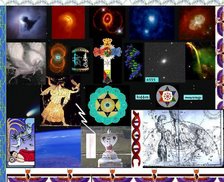
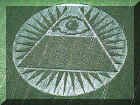




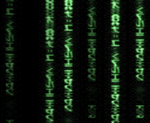
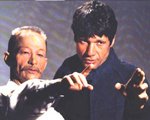


































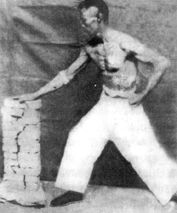





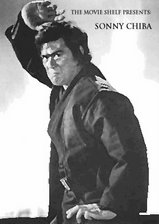








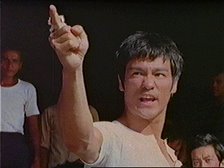



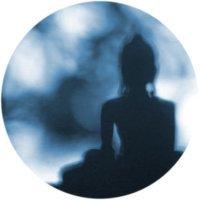













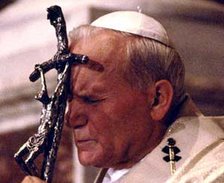



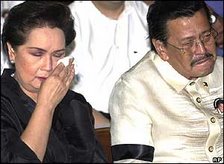

















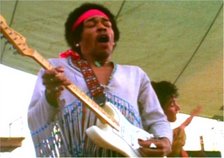
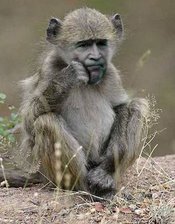

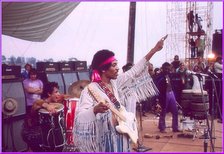
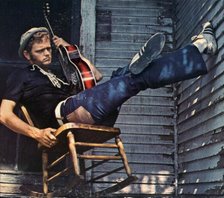




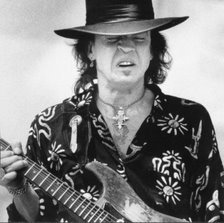



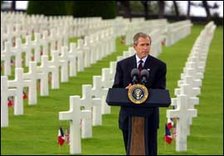
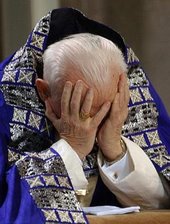

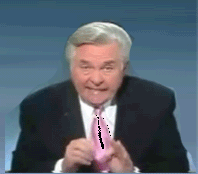





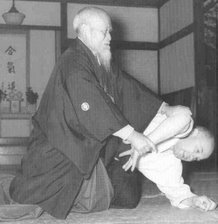
































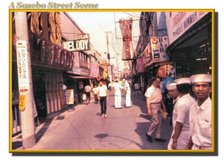

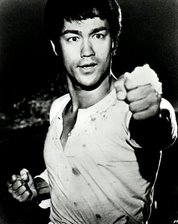
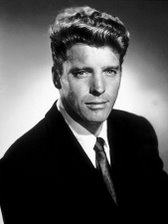
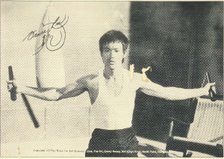


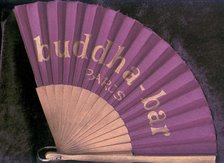
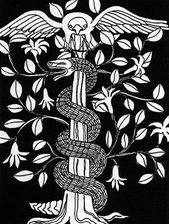


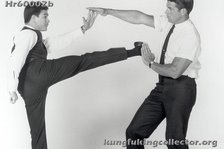
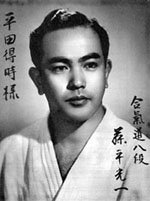



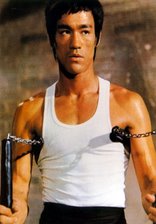
No comments:
Post a Comment